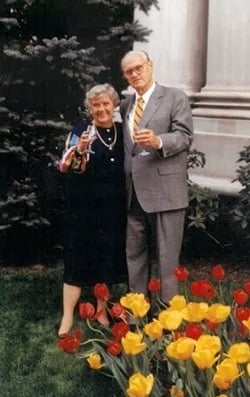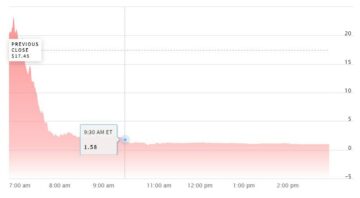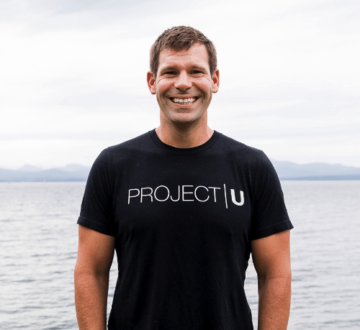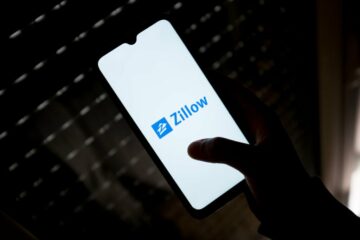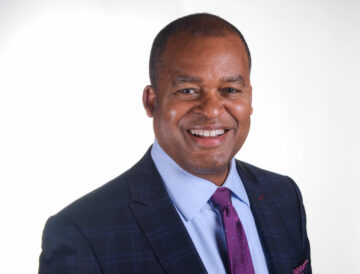New markets require new approaches and tactics. Experts and industry leaders take the stage at Inman Connect New York in January to help navigate the market shift — and prepare for the next one. Meet the moment and join us. Register here
The past several years in real estate have upended everything.
Vast amounts of venture capital poured into the industry, new companies sprang up seemingly overnight and became behemoths, and (more recently) one of the most pronounced bull markets ever soured in record time.
But through all of the change, disruption and upheaval, one company has been playing the long game: Howard Hanna Real Estate.
Founded more than half a century ago in Pittsburgh, Howard Hanna has over the decades slowly expanded to operate across numerous states and to offer an array of ancillary services. The company includes thousands of real estate agents and salaried employees. Earlier this year, it was ranked seventh on the T3 Sixty 2022 Mega 1000 ranking of real estate firms by sales volume.
Significantly, Howard Hanna was the highest-ranked company on the list that is not either publicly traded or owned by a public company.
That fact gets at a key identifying feature of Howard Hanna: The company is still owned and operated by the Hanna family, making it by far the largest mom-and-pop real estate operation in the country. It stands apart from the venture- and market-fueled trends that have dominated the industry but has nevertheless managed to compete with companies that more often make news headlines, for better or worse.
For these reasons, and because Howard Hanna has managed to prove that an old-school approach can work even in changing times, Inman has selected the entire Hanna family as the 2022 Person of the Year.
The family is a sprawling tribe with deep roots in real estate, and today, 11 different members work in the family business. Those in top-leadership positions include Howard W. “Hoddy” Hanna III, the company’s chairman; CEO Helen Hanna Casey; Chief Operating Officer and Executive Vice President Annie Hanna Cestra; and President Howard W. “Hoby” Hanna IV. The first three people in that list are children of the company’s founders, Anne and Howard Hanna, and members of the second generation. The fourth is a grandson and a member of the third generation.
To get a sense of what makes Howard Hanna work, and why this family firm has managed to thrive for multiple generations, Inman recently chatted with Howard “Hoby” Hanna IV, the firm’s current president — and grandson of co-founder Howard Hanna Jr. And the takeaway is that the relationship between the family and the company isn’t just a quirk or coincidence; instead, Howard Hanna’s unique family orientation is a key part of its success.
What follows is a version of Hoby Hanna’s conversation with Inman that has been edited for length and clarity.
Inman: So to get started, give me the origin story of the Howard Hanna family and family business.

Anne and Howard Hanna. Credit: Howard Hanna
Hoby Hanna: Our business was started in 1957 by my grandparents Anne and Howard Hanna. They started it in the Shady Side section of Pittsburgh, right by the University of Pittsburgh. It really started off as a true mom-and-pop real estate brokerage firm. My grandfather did a little bit of everything, from real estate sales to leasing to property management. And he was an appraiser. He loved the real estate business so he started his own company after working for some other brokers. He started a company that he felt would be based on cooperation.
In the late 1960s, my dad came into the business and really started taking the one-office company into a multiple-office brokerage firm throughout greater Pittsburgh. He did that with his two sisters Helen and Annie. They came into the business in the 1970s after they all graduated from school. And my grandfather looked at his 20-something-year-old kids who had this dream and vision of having multiple residential offices and multiple agents and he basically supported them. He said, ‘hey, you guys go ahead and do it.’
Through the 1970s the business did just that, grew into new markets. We grew really aggressively throughout western Pennsylvania. In the early 80s, even as interest rates were 18 percent and Pittsburgh was having some challenges with the economy and a recession, the company said, ‘how do we continue to grow?’
So in 1981 or 1982, we became a mortgage broker. At the same time, we started a title company and a few years after that started an insurance division.
We were really a Pittsburgh-based company until the late 1990s. We had grown to be No. 1 in the market there. In the late 90s, I came into the business as sort of the first of six members of what we call the third generation who now have active roles in the business.
I started out, as we almost all have, as a real estate agent in sales. I did that for three-and-a-half years. And that’s when we decided if we wanted some growth opportunities for the next generation in the business, we would need to expand beyond just Pittsburgh. So that’s when we began to say, how can we grow regionally?
So in the last 20-some years, we have sort of methodically, and by design without a lot of fanfare, grown our brokerage business to be in 13 states. And as we do that we bring our mortgage, title and insurance services into those markets. That focus has led us to be, as we say, the largest independent and still family-owned real estate services company in the country.
What’s the agent count right now?
Fifteen thousand: It’s about 400 offices in 13 states. And then another probably 2,000 employees in support services and everything else.
How did you learn all of that history? Did you grow up hearing the tale of your grandpa starting the company and then your dad joining it? How present was the Hanna company in the lives of the Hanna family members while growing up?
It was omnipresent. I’m 51 and growing up in the 70s and 80s and 90s we would entertain at our home and have awards celebrations and parties. We always really tried to have this family concept.
My name is Howard Hanna, even though everybody calls me Hoby. When you grow up in a city like Pittsburgh, and there are for sale signs out there, people would say, ‘wait, you’re Howard Hanna, like the for sale signs?’
For years, in the 70s, the phones would ring back to the house when I was growing up. I would be answering the telephone at our house at 10 years old saying, ‘good evening Howard Hanna residence, can I help you?’ Because we had customers calling.
Everybody was brought into the mix. All of us were as young kids, whether it was putting signs up in the summertime or whether it was helping around the offices making coffee or stuffing envelopes for awards events.
You grew up in this, but that doesn’t always mean a person wants to join up. In some families, subsequent generations don’t join the business. So what has kept this going for so long?
For my dad and my aunts, I can’t say what that moment was other than to point to my grandmother. She was the daughter of a gentleman who had his own family business. I think in her DNA she wanted to see the family business happen. So she exposed us and in quiet conversations would say, ‘hey, if this is something you want to do you can really make a difference.’ She was a dreamer. She always instilled dreaming in all of us.
I would say for me, I remember not wanting to do anything with a family business especially when I was in high school and college. Then as a senior in college, the best job offer I had was to go into the management and development program at NVR Ryan Homes in Washington, D.C. I actually had accepted an opportunity to go after I graduated. But I had nine credits left at the University of Pittsburgh, and I said, ‘what if I sell a little real estate and learn some sales skills in the second semester of my senior year?’ By May of that year, I had fallen in love with the job and had earned in commissions more than what the management development job was going to be.
Some relatives have come into the business and decided it wasn’t for them, they wanted to do something else.
But as we’ve grown the company, my generation has come in. I have a cousin who runs our insurance group. My brother runs our mortgage and title operations now. I have a sister who is in relocation and runs our relocation company.
You’re the third generation in the business. Is the fourth generation going to join someday?
It’s interesting. I have four kids. I have a daughter who is a junior in college and a son who is a freshman. And time flies pretty quickly. And I do have some nieces and nephews who are a little older. Right now, that next generation, I have not seen anybody yet who has jumped out and said, ‘can I definitely do this?’
But it’s encouraged if they want those opportunities. They’ve all been raised in it as well. So they know that to come into the family business comes with a lot of positives that outweigh any negatives. But there’s also an expectation of work ethic. And because you’re family, you might have to have a thick skin, because you might talk to your sibling differently than you’d talk to another coworker. So you have to be prepared for that.
Is there a desire for there to always be a member of the family at the helm? Do you always want to have a Hanna running the company?
That’s a great question, and I don’t know if we’ve ever asked ourselves that. I think to me, I hope that there’s a Hanna that wants to play a senior role at the company. But that being said, the company has gotten to a point in size and scope that we want to make sure we have the best operators and those who can help drive that business.
We have to make sure we have the right leadership in place, not just because they’re a family member or not, we need people who are passionate and who care about the mission of the company.
Some people argue that you shouldn’t mix family and business. But your family did the opposite and it worked out. What are some of the challenges you’ve faced along the way?
I don’t know anything but mixing family and business.
Probably the biggest challenge is also the biggest strength. The biggest is that you bring in all that family dynamic. So people can take things personally. And we have to remind people, it’s not personal; don’t take it that way.
At the same time, you really can look around, at least at our family, and know that everybody has got your back.
We had an executive committee meeting that has a lot of family members and some non-family members, and we’re making serious decisions. In that room, it’s a safe place for people to really express how they feel, good bad or different. But we go through a process. So when we’re making tough decisions or any decision for that matter, we vet it. We discuss it. We let everybody express their opinion and put everything on the table.
Then once it’s out to the public, nobody is second-guessing that decision.
Maybe that’s not every family, but I think what’s unique with ours is that I know every family member, whether they’re in the business or not, has my back and I have all their backs in every decision we make.
How did your family instill that ethos in the group? How did everybody come to have those values?
I do think that was instilled by my grandmother at least in her kids and us as the grandkids. We spent a lot of time at her house and with her. We were sort of raised by the village. But the matriarch of that village, my grandmother, was always instilling in you that you have an obligation. Not just to yourself, but to your family. And this is the family, not just your nuclear family, your immediate family, but the Hanna family as a whole.
I hope that my generation is doing that same thing with our kids. As long as we have that, that’s a little bit of our secret sauce.
We’re living in a time of huge disruption in real estate. You guys are by comparison a relatively traditional company. Talk to me about how you’ve managed to thrive and come out ahead, even as the world and the industry have experienced so much change.
It’s probably not just one answer, but I would say No. 1 is we believe at our core we’re a real estate services company, meaning we sell homes, buildings, mortgages, titles and insurance. That’s what we do. We’ve never tried to tell people we’re a technology company and that we’re going to disrupt the world by inventing some technology that can take us on the wrong path. We’ve tried to ask, ‘what do the consumers need, and can we create unique and innovative products that help us either support our agents or support the consumer?’
We’ve grown, but we’re still a family business. We’ve had VC money and investor money come to us and say, ‘we can accelerate your growth and you can do it faster.’ But we’ve always just said, ‘we’ll be the tortoise.’ And maybe we could have more exciting growth and get people more excited, but we think that what we’re doing is thoughtful. And we look at the financials. We ask if we’re going to make a return, not just for ourselves but for everybody that works for us and with us.
There are times when the markets are frothy and you see all this crazy money come in and all these concepts and ideas. It can be distracting. But we always go back to, what do we do? We come back to, stay focused on what we are, who we are, and stay true to who we are.
And trust me, in the last three years, there have been a lot of distractions. There have been a lot of times that there are opportunities in front of us and we sat there and said, ‘should we really make a jump? Should we extend our borrowing ability and really go to our banks, or look at some different forms of financing?’
But we’d always come back to those, if you want to call it Midwestern blue-collar roots and say, ‘it looks too good to be true.’
Maybe that’s it. I know that doesn’t sound exciting or sexy. But it’s just who we are and what we do.
The word disruption became popular in our industry over the past five years. I think that’s good for the business. Personally, I’m really bullish about the coming couple of years. I know most people aren’t. But I think some of the disruption that came into play, because of the kind of market we had, because of some of the cash on the side, it has caused us as a company to up our game.
And still, there are some areas where we can improve. And we think because we’re stable, we can take some of that disruption and look at it and say, ‘how does it improve the process and transaction? How does this improve the services of our agents?’
I think it ups the game. Now we’re going to see some of the disruptors pull back and come down to operate like we do. And we can sort of accelerate our growth.
I think that’s what happens in these markets. You get frothiness, cash thrown into an industry, and some things work and some don’t. Then over the next couple of years, companies like ours can figure out what worked and enhance the experience of buying or selling a home. I think that gives us great opportunities.
- SEO Powered Content & PR Distribution. Get Amplified Today.
- Platoblockchain. Web3 Metaverse Intelligence. Knowledge Amplified. Access Here.
- Source: https://www.inman.com/2022/12/29/inmans-2022-person-of-the-year-the-howard-hanna-family/
- 000
- 1
- 10
- 11
- 2022
- a
- ability
- About
- accelerate
- across
- active
- actually
- After
- Agent
- agents
- ahead
- All
- always
- amounts
- and
- Another
- answer
- apart
- Appraiser
- approach
- approaches
- areas
- argue
- around
- Array
- awards
- back
- Bad
- Banks
- based
- Basically
- because
- began
- being
- believe
- BEST
- Better
- between
- Beyond
- Biggest
- Bit
- Borrowing
- bring
- broker
- brokerage
- brokers
- brought
- bull
- Bullish
- business
- Buying
- call
- calling
- Calls
- care
- Cash
- caused
- Century
- ceo
- chairman
- challenge
- challenges
- change
- changing
- chief
- Chief Operating Officer
- Children
- City
- clarity
- Co-founder
- Coffee
- coincidence
- College
- COM
- come
- coming
- commissions
- Companies
- company
- Company’s
- comparison
- compete
- concept
- concepts
- Connect
- consumer
- Consumers
- continue
- Conversation
- conversations
- cooperation
- Core
- could
- country
- Couple
- create
- credit
- Credits
- Current
- Customers
- D.C.
- Dad
- decades
- decided
- decision
- decisions
- deep
- definitely
- Design
- Development
- DID
- difference
- different
- different forms
- discuss
- Disrupt
- Disruption
- Disruptors
- Division
- dna
- Doesn’t
- doing
- Dont
- down
- dream
- drive
- dynamic
- Earlier
- Early
- earned
- economy
- either
- employees
- encouraged
- Entire
- especially
- estate
- Ethic
- Ethos
- Even
- evening
- events
- EVER
- everything
- excited
- exciting
- executive
- Expand
- expanded
- expectation
- experience
- experienced
- experts
- exposed
- express
- extend
- faced
- Fallen
- families
- family
- family members
- faster
- Feature
- few
- Figure
- financials
- financing
- Firm
- firms
- First
- Focus
- focused
- follows
- forms
- founders
- Fourth
- from
- front
- game
- generation
- generations
- get
- Give
- gives
- Go
- going
- good
- great
- greater
- Group
- Grow
- Growing
- grown
- Growth
- Half
- happen
- happens
- having
- Headlines
- hearing
- help
- helping
- High
- history
- Home
- Homes
- hope
- House
- How
- HTTPS
- huge
- ideas
- identifying
- immediate
- improve
- in
- include
- includes
- independent
- industry
- innovative
- instead
- insurance
- interest
- Interest Rates
- interesting
- investor
- IT
- January
- Jim
- Job
- join
- Join us
- joining
- jump
- just one
- Key
- kids
- Kind
- Know
- largest
- Last
- Late
- leaders
- Leadership
- LEARN
- leasing
- Led
- Length
- List
- little
- Lives
- living
- Long
- Long Game
- Look
- looked
- LOOKS
- Lot
- love
- loved
- make
- MAKES
- Making
- managed
- management
- Market
- Markets
- Matter
- max-width
- meaning
- Meet
- meeting
- Mega
- member
- Members
- might
- Mission
- Mixing
- moment
- money
- more
- Mortgage
- Mortgages
- most
- multiple
- name
- Navigate
- Need
- Nevertheless
- New
- news
- next
- nuclear
- numerous
- NVR
- offer
- Officer
- offices
- Old
- ONE
- operate
- operated
- operating
- operation
- Operations
- operators
- Opinion
- opportunities
- Opportunity
- opposite
- Other
- overnight
- own
- owned
- part
- parties
- passionate
- past
- path
- Pennsylvania
- People
- percent
- person
- personal
- Personally
- phones
- Place
- plato
- Plato Data Intelligence
- PlatoData
- Play
- playing
- Point
- Popular
- positions
- Prepare
- prepared
- present
- president
- pretty
- probably
- process
- Products
- Program
- property
- Prove
- public
- publicly
- put
- Putting
- question
- quickly
- raised
- ranked
- Ranking
- Rates
- real
- real estate
- reasons
- recently
- recession
- record
- relationship
- relatively
- relatives
- remember
- require
- return
- Ring
- Role
- roles
- Room
- running
- Ryan
- Ryan Homes
- safe
- Said
- sale
- sales
- same
- School
- scope
- Second
- Second Generation
- Secret
- Section
- selected
- sell
- Selling
- sense
- serious
- Services
- several
- shift
- should
- Signs
- SIX
- Size
- skills
- Skin
- Slowly
- So
- some
- someday
- something
- son
- Sound
- spent
- stable
- Stage
- stands
- started
- Starting
- States
- stay
- Still
- Story
- strength
- subsequent
- success
- support
- Supported
- table
- tactics
- Take
- taking
- Talk
- Technology
- The
- the world
- their
- There.
- thing
- things
- Third
- Third Generation
- this year
- thousands
- three
- Thrive
- Through
- throughout
- time
- times
- Title
- titles
- to
- today
- too
- traded
- traditional
- transaction
- Trends
- Tribe
- true
- Trust
- unique
- university
- UPS
- us
- Values
- VC
- version
- VET
- Vice President
- Village
- vision
- W
- wanted
- wanting
- washington
- Western
- What
- whether
- while
- WHO
- without
- Word
- Work
- worked
- working
- works
- world
- would
- Wrong
- year
- years
- young
- Your
- yourself
- zephyrnet

